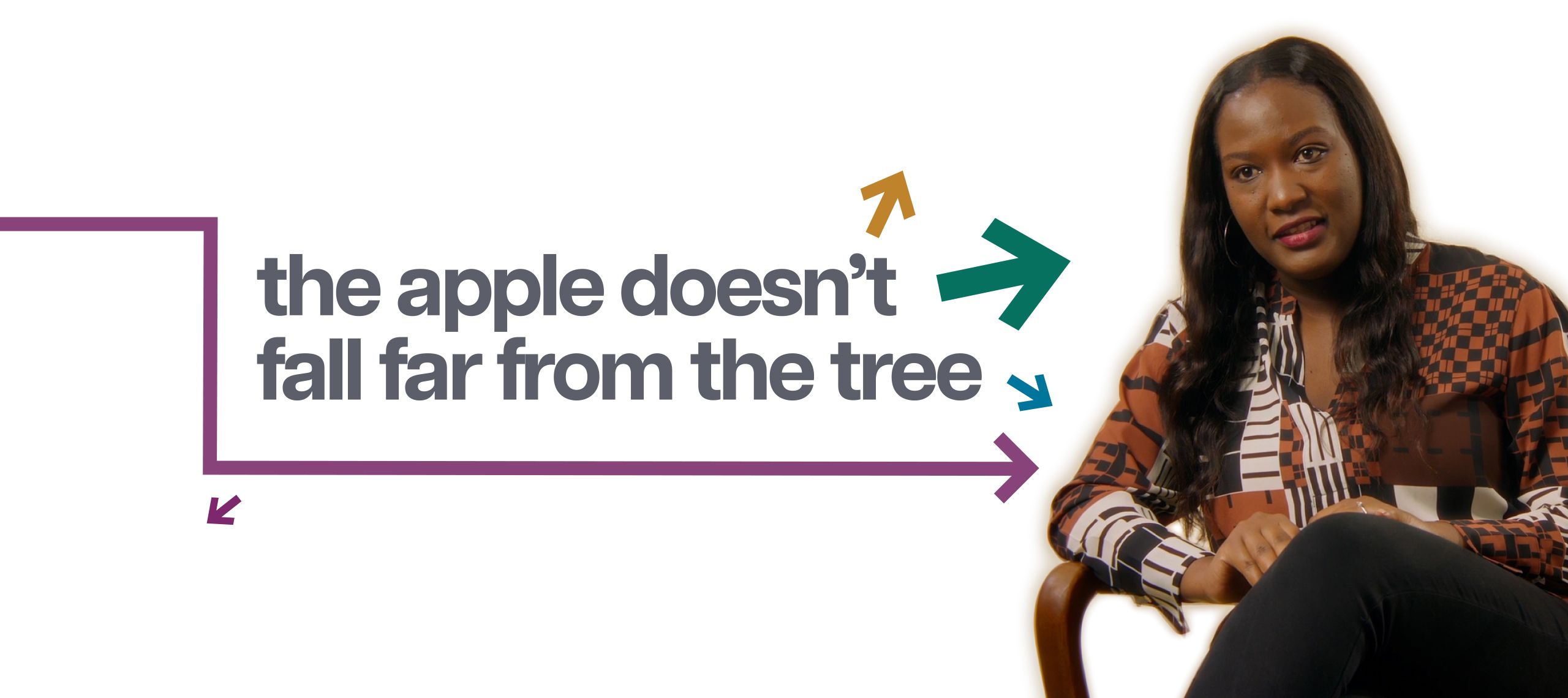
Research Journeys: The apple doesn't fall far from the tree
I decided I wanted to be part of the stage that comes after data collection so that I could help in some way.
Tatendashe's journey into the world of data began as a child in the school holidays when she used to help her mother with data entry tasks. She then got a job in data collection where she saw how data analysis could help create solutions to real-world problems.
Now, Tatendashe is a data analyst with the cardiovascular epidemiology group at the University of Leeds. She uses patient data to help people with cardiovascular conditions get better treatment and outcomes.
This Research Journey is part of a collection made with members of the 100 Black Women Professors NOW network.
Browse stories from the collection.
Transcript
[Tatendashe is sitting in front of a white background speaking directly to camera.]
Tatendashe: My mother is a biostatistician with a data analyst background and she introduced me to all things research when I was a teenager.
To be honest at the time it wasn't something that I was very interested in, but she suggested it as a way of me just earning a little bit of extra money during school break. So she was working for these non-governmental organisations, for example, food and agriculture organisation, assessing food security in households across the country. And these projects would result to piles and piles of questionnaire data that would need then to be moved from paper to computer and that's where I would come in.
I remember coming back from boarding school and spending the greater part of the four weeks break, just working away on my laptop, entering data. Working for my mum was very nice, however things got a little bit tricky when I had to ask for my wages.
Anyway, fast forward to when I did my first degree, a BSc in Nutrition. I also was involved in projects that the university was doing, assessing malnutrition in children from deprived homes in the country and moving from household to household, interacting with the participant. The main question that would arise was what will happen to our data after you collected it? They were getting frustrated because they were taking part in a lot of projects, assessing different dimensions of their vulnerabilities in their lives.
However, nothing was coming out of it and they were really frustrated because they were really in desperate need of help. So this ignited a curiosity in me to say, "so what happens to all this data that's been collected?" So I went and I had a conversation with the people who were leading the data collection teams and I asked them, say, "so what's going to happen to all this data?" And they said, "to be honest, we are not part of the stage that happens after the data is collected. We are only contracted to facilitate the data collection." But off the top of their heads, they said, "the NGOs will probably write reports, analyse the data, disseminate the findings and compile recommendations for government or policymakers on how to best help people."
I decided I wanted to be part of the stage that comes after data collection so that I would help in some way to make sure that intervention comes back after everything is said and done. So I decided to do a master's in epidemiology and biostatistics after completing my first degree. I chose this master's because it would equip me with the know-how and skill set in all things, study design, analysing data, dissemination of findings and even, you know, compiling recommendations so that people can be helped after taking part in different projects or research.
So in 2013, I moved to the UK to do my master's in epidemiology and biostatistics. After completing my master's, I then started working as a research assistant and I enrolled for a PhD, which I completed in 2018. And then when I completed my PhD, I started working as a data analyst as part of the cardiovascular epidemiology group here at the University of Leeds. And as part of the team, our work involves assessing quality of care and outcomes for heart attack patients, using routinely collected electronic health record data and applying advanced discord techniques.
The findings of our work informs patients, clinicians, policymakers and government on the best way to treat patients after heart attacks so that we can improve their quality of life and minimise premature deaths. I've been actively working in healthcare research for almost 10 years now and working as a data analyst, just like my mum.
So the apple did not fall too far from the tree. I can say that my research journey story is still maturing and I hope to work in more diverse fields in healthcare and hopefully work in those projects in Africa and help make sure that people do get the aid and intervention that they need after taking part in research.